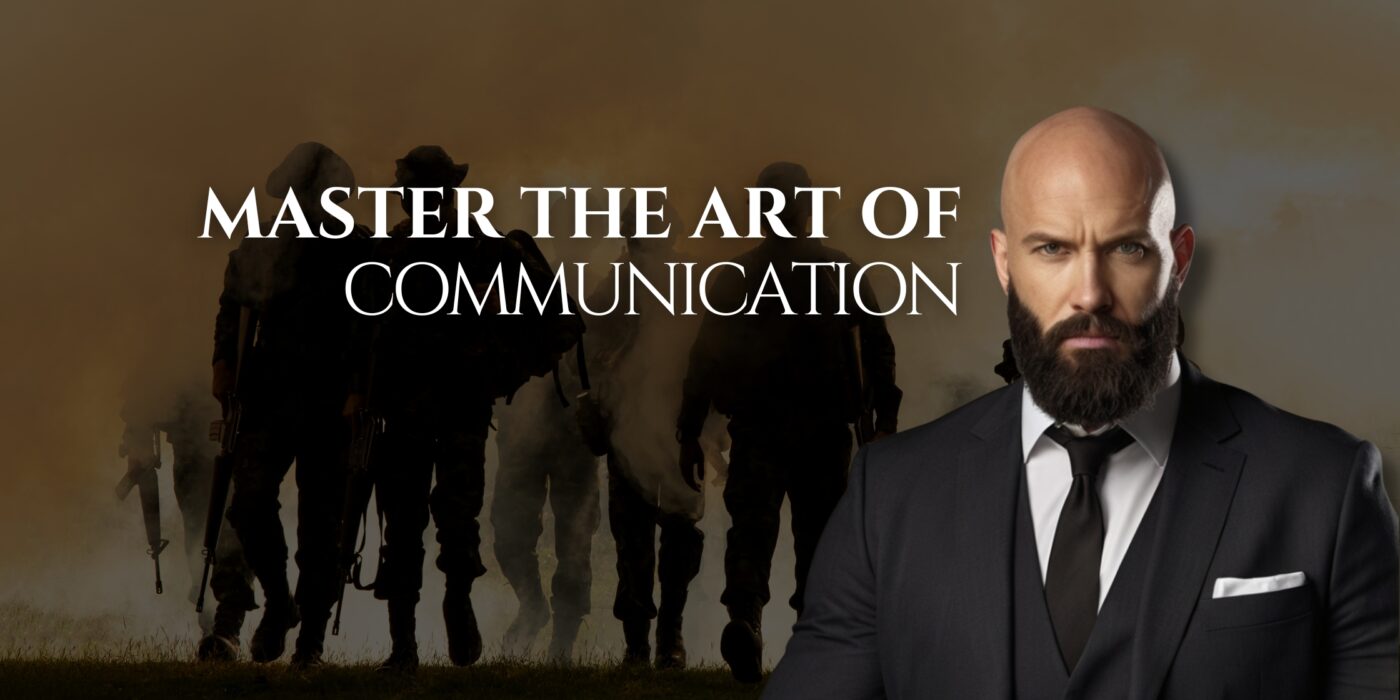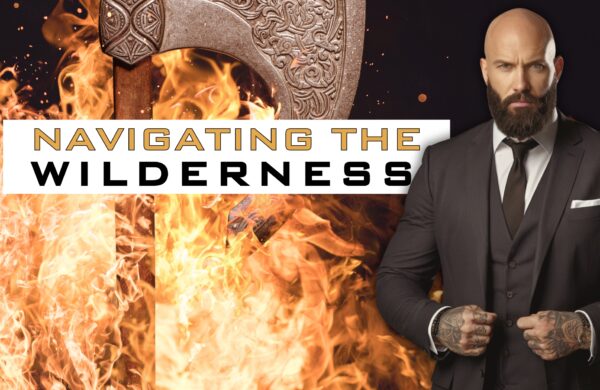Introduction: Why Communication in Relationships Matters
Communication in relationships is the cornerstone of connection, trust, and understanding. Without clear and effective communication, even the strongest bonds can falter under the weight of misunderstandings and unmet needs. It’s not just about talking; it’s about truly connecting with your partner on a deeper emotional level.
In today’s fast-paced world, many couples struggle to make time for meaningful conversations, leading to feelings of isolation or disconnection. Yet, the ability to express yourself honestly and listen attentively to your partner can transform how you navigate challenges, celebrate successes, and build a lasting connection.
This article explores why communication is vital for healthy relationships and provides actionable tips to help you master this essential skill. Whether you’re aiming to resolve conflicts more effectively or simply deepen your bond, improving communication can set the foundation for a happier, more fulfilling relationship.
Why is communication so important? Studies consistently show that couples who communicate effectively are more likely to maintain satisfying and long-term relationships. Open and honest dialogue fosters trust, encourages empathy, and helps partners feel seen and valued.
By the end of this guide, you’ll have a deeper understanding of how communication impacts your relationship and practical tools to make your conversations more meaningful and impactful.
The Basics of Communication in Relationships
What Does Effective Communication Look Like?
Effective communication in relationships goes beyond simply exchanging words. It’s about ensuring that both partners feel heard, understood, and respected. At its core, effective communication involves:
- Clarity: Expressing your thoughts and feelings in a straightforward way without ambiguity.
- Empathy: Putting yourself in your partner’s shoes to understand their perspective.
- Active Engagement: Listening attentively and showing genuine interest in what your partner is saying.
For example, instead of saying, “You never help around the house,” a clearer and less accusatory way to communicate might be, “I feel overwhelmed when I don’t have help with chores. Can we talk about sharing responsibilities?” This approach fosters a constructive dialogue rather than escalating tension.
Common Barriers to Communication in Relationships
Even with the best intentions, barriers can hinder communication in relationships. Recognizing these obstacles is the first step in overcoming them:
- Assumptions: Believing you already know what your partner is thinking or feeling can shut down meaningful conversations.
- Distractions: Constantly being on your phone or multitasking while talking can make your partner feel unimportant.
- Emotional Reactivity: Letting anger, frustration, or sadness dictate your words can lead to hurtful comments or misunderstandings.
- Fear of Vulnerability: Avoiding honest conversations out of fear of judgment or rejection can create distance in a relationship.
How to Overcome These Barriers
- Practice Mindfulness: Focus on the present moment and actively listen to your partner.
- Set Aside Dedicated Time: Regularly schedule uninterrupted time to connect and talk about important issues.
- Use “I” Statements: Express your feelings without placing blame, e.g., “I feel hurt when…” instead of “You always…”
- Check for Understanding: Paraphrase what your partner says to ensure clarity, e.g., “What I’m hearing is that you feel…”
By understanding the basics of communication in relationships, you can lay the groundwork for deeper connections and mutual respect. In the next section, we’ll explore strategies to build a strong foundation for effective communication.
Building a Strong Foundation for Communication in Relationships
Active Listening in Relationships
One of the most critical skills for effective communication in relationships is active listening. This means giving your full attention to your partner without interrupting, judging, or thinking about your response while they’re speaking. Active listening shows respect and ensures that your partner feels heard and valued.
How to Practice Active Listening
- Maintain Eye Contact: This conveys interest and attentiveness.
- Eliminate Distractions: Put away phones, turn off the TV, and focus solely on your partner.
- Paraphrase What You Hear: Reflect back what your partner said, e.g., “It sounds like you’re feeling frustrated because…”
- Validate Their Feelings: Acknowledge their emotions without dismissing or minimizing them, e.g., “I can see why that upset you.”
Benefits of Listening More and Talking Less
- Builds trust and strengthens emotional intimacy.
- Helps resolve conflicts more effectively by understanding each other’s perspectives.
- Encourages your partner to open up, fostering deeper conversations.
Expressing Yourself Clearly and Kindly
While listening is crucial, expressing yourself effectively is equally important. Clear communication prevents misunderstandings, and kindness ensures that your message is received positively.
The Power of “I” Statements
Using “I” statements instead of “You” statements shifts the focus from blaming to sharing your feelings. For example:
- Instead of: “You never listen to me.”
- Try: “I feel ignored when I don’t feel heard during our conversations.”
How to Manage Emotions While Speaking
- Pause Before Responding: If you’re upset, take a moment to breathe before speaking.
- Stay Calm: Keep your tone neutral and avoid raising your voice.
- Be Specific: Clearly state what you need or how you feel without generalizing, e.g., “I felt hurt when…” instead of “You always make me feel bad.”
By focusing on active listening and expressing yourself with clarity and kindness, you create a safe space for open, honest communication. In the next section, we’ll explore actionable strategies to further improve communication in relationships.
Strategies to Improve Communication in Relationships
Nonverbal Communication Tips for Better Understanding
Words are only part of the equation in communication. Nonverbal cues like facial expressions, tone of voice, and body language can often convey more than spoken words. Learning to interpret and use nonverbal communication effectively can significantly improve understanding in relationships.
Reading Body Language Effectively
- Observe Posture: Open body language (uncrossed arms, relaxed posture) indicates receptiveness, while closed body language can signal defensiveness.
- Notice Facial Expressions: A smile, frown, or raised eyebrow can give clues about your partner’s emotions.
- Pay Attention to Proximity: Physical closeness often signals intimacy, while distance may indicate discomfort or disengagement.
Using Facial Expressions and Tone Wisely
- Smile When Appropriate: A warm smile can reassure your partner and ease tension.
- Mind Your Tone: A calm and steady tone can prevent misinterpretation, even when discussing challenging topics.
- Match Your Expressions to Your Words: Inconsistencies between what you say and how you look can create confusion.
Overcoming Misunderstandings in Relationships
Misunderstandings are inevitable, but they don’t have to derail your relationship. Addressing them early and constructively can prevent resentment from building.
Steps to Resolve Conflicts Peacefully
- Identify the Issue: Focus on the specific misunderstanding rather than bringing up past grievances.
- Stay Solution-Focused: Instead of dwelling on what went wrong, discuss how to move forward.
- Use a Collaborative Approach: Work together to find a compromise that satisfies both partners.
- Take Breaks if Needed: If emotions are running high, pause the conversation and revisit it when you’re both calmer.
Why Apologies Matter
A sincere apology can repair damage and restore trust. When apologizing:
- Acknowledge the Hurt: “I understand how my actions made you feel.”
- Take Responsibility: Avoid excuses; own up to your part in the misunderstanding.
- Commit to Change: Show your willingness to improve, e.g., “I’ll make an effort to listen more carefully.”
By mastering nonverbal communication and learning to resolve misunderstandings effectively, you can strengthen your relationship and build a more harmonious connection. In the next section, we’ll delve into advanced techniques for communicating during challenging times.
Advanced Techniques for Strengthening Communication
How to Communicate During Tough Times
Every relationship faces challenges, but how you communicate during these moments can make or break your bond. Effective communication during tough times requires patience, empathy, and intentionality.
Navigating Arguments with Respect
- Avoid Blame: Focus on the issue, not the person. Replace accusations like “You’re always late” with “I feel stressed when we don’t arrive on time.”
- Take Turns Speaking: Let each person express their thoughts without interruption to prevent escalation.
- Stick to the Present: Avoid bringing up past issues that aren’t relevant to the current conversation.
Supporting Each Other During Stressful Situations
- Acknowledge Their Stress: Let your partner know you see and understand their struggles.
- Ask Open-Ended Questions: Instead of “Are you okay?” try “What’s been on your mind lately?”
- Offer Solutions Without Overstepping: Ask if they’d like your input before providing advice.
Using Communication to Build Intimacy
Intimacy isn’t just physical; it’s emotional, mental, and spiritual. Strong communication can deepen your connection on all these levels.
How Honest Conversations Foster Trust
- Be Transparent: Share your thoughts, fears, and dreams, even if they make you vulnerable.
- Practice Gratitude: Regularly express appreciation for your partner to nurture a positive atmosphere.
- Admit Mistakes: Being accountable builds trust and shows maturity.
Sharing Goals and Dreams
Discussing your individual and shared aspirations can bring you closer.
- Create a Vision Together: Talk about what you want your future to look like as a couple.
- Support Individual Growth: Encourage each other’s personal goals to foster mutual respect and admiration.
- Celebrate Progress: Acknowledge milestones together, whether big or small.
When you communicate effectively during tough times and use conversations to foster intimacy, you create a resilient and thriving relationship. Next, we’ll explore practical exercises you can use to enhance your communication skills even further.
Practical Exercises to Enhance Communication in Relationships
Improving communication in relationships takes practice, and incorporating intentional exercises into your routine can make a significant difference. These activities are designed to strengthen your connection and foster deeper understanding.
Daily Check-Ins
Set aside a few minutes each day to connect with your partner.
- Purpose: To create a habit of open communication and stay updated on each other’s lives.
- How to Do It:
- Ask questions like, “What was the best part of your day?” or “Is there anything on your mind?”
- Share something positive about your day to foster a sense of gratitude.
- Benefits: Builds consistency in communication and helps you feel emotionally closer.
The “Reflective Listening” Challenge
This exercise helps both partners practice active listening and improve mutual understanding.
- Purpose: To ensure both partners feel heard and validated.
- How to Do It:
- One partner speaks about a topic for 2–3 minutes while the other listens without interrupting.
- The listener then paraphrases what they heard, e.g., “What I’m hearing is that you felt overwhelmed today.”
- Switch roles and repeat.
- Benefits: Reduces misunderstandings, improves empathy, and enhances communication skills.
Journaling Together
Writing down thoughts and reflections together can be a powerful way to open up and share feelings.
- Purpose: To encourage deeper emotional expression and mutual understanding.
- How to Do It:
- Choose prompts to answer individually, such as “What do I love most about our relationship?” or “What’s one thing I wish we did more of?”
- Share and discuss your responses in a relaxed setting.
- Benefits: Strengthens your emotional connection and fosters meaningful conversations.
Role-Playing Scenarios
Practicing how to handle challenging conversations can help prepare you for real-life situations.
- Purpose: To build confidence in addressing sensitive topics constructively.
- How to Do It:
- Choose a hypothetical scenario, like discussing financial concerns or resolving a conflict.
- Take turns role-playing different perspectives and brainstorming solutions.
- Benefits: Reduces anxiety about tough conversations and helps refine problem-solving skills.
The Appreciation Game
Expressing gratitude can shift the dynamic in your relationship toward positivity and love.
- Purpose: To remind each other of the good qualities and moments you share.
- How to Do It:
- Take turns naming three things you appreciate about each other or your relationship.
- Be specific, e.g., “I appreciate how you always make me laugh, even on tough days.”
- Benefits: Boosts emotional intimacy and reinforces positive feelings toward each other.
Incorporating these exercises into your routine can transform how you communicate and strengthen your relationship. In the next section, we’ll wrap up with key takeaways and an encouraging call to action.
Conclusion: Embracing Better Communication in Relationships
Effective communication in relationships is more than just a skill—it’s a commitment to building a connection rooted in trust, understanding, and love. By actively listening, expressing yourself with clarity and kindness, and integrating practical strategies, you can transform your relationship into one that thrives through life’s challenges and joys.
Key Takeaways:
- Communication is the Foundation: Open, honest dialogue fosters trust and strengthens emotional bonds.
- Active Listening is Essential: Fully engaging with your partner’s words and emotions creates a deeper connection.
- Kindness and Clarity Matter: How you express yourself can significantly impact how your message is received.
- Practice Makes Progress: Regularly incorporating exercises and being intentional about your communication habits can lead to lasting improvements.
Encouragement to Take Action
Remember, even small steps can lead to meaningful changes. Whether it’s starting with a daily check-in or trying out reflective listening, every effort you make to improve communication will positively impact your relationship.
Building stronger communication isn’t about perfection; it’s about progress. Commit to growing together, be patient with yourself and your partner, and celebrate every milestone along the way.
As you embrace these principles and put them into practice, you’ll discover that better communication leads to a deeper understanding, greater intimacy, and a more fulfilling relationship.
Next Steps:
For more tips on improving relationships, explore additional resources or share this article with someone who might find it helpful. Remember, great communication is a journey—and you’ve already taken the first step! Make sure to listen in over at The Relentless Theory Podcast on Spotify!
FAQs: Communication in Relationships
What is the most common communication problem in relationships?
The most common communication problem in relationships is misunderstanding. This often arises from poor listening, unclear expression, or making assumptions about your partner’s feelings or intentions. Overcoming this involves practicing active listening and asking clarifying questions to ensure both parties are on the same page.
How can I improve communication with my partner today?
Start small by implementing a daily check-in. Set aside 5–10 minutes to talk openly about your day, feelings, or anything on your mind. Focus on listening without interrupting and use “I” statements to express your emotions clearly.
What role does body language play in communication?
Body language is a crucial part of communication in relationships. Nonverbal cues like facial expressions, tone, posture, and gestures often convey more than words. Being mindful of your body language and learning to read your partner’s cues can enhance understanding and emotional connection.
How do I handle difficult conversations with my partner?
Approach difficult conversations with a calm and respectful mindset. Start by expressing your feelings with “I” statements, actively listen to your partner’s perspective, and focus on finding a solution together. Taking breaks if emotions run high can also help keep the discussion productive.
What are some fun ways to improve communication in a relationship?
Try engaging in activities like journaling together, the appreciation game, or role-playing scenarios to build trust and deepen your connection. These exercises can make improving communication enjoyable and meaningful.



